|
Area
|
Goal
|
Key steps taken to achieve the goal
|
| Market – national energy security |
Providing customers with access to natural gas, electricity and heat, based on diversified sources and directions of natural gas supplies. 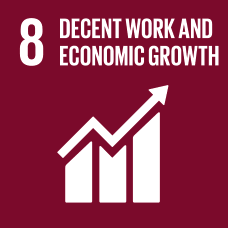 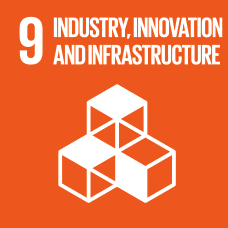 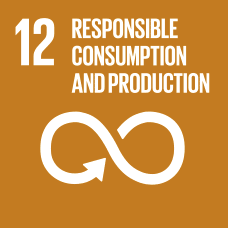
|
- Upstream operations (exploration and production activities, development of new methods to improve production efficiency and extend well life cycle, expansion of underground gas storage: depleted gas reservoirs and caverns);
- Use of advanced exploration and production methods and technologies (production control, process automation etc.), some of them based on international experience;
- Production projects in Norway focused on increasing natural gas output;
- PGNiG actively supports all efforts aimed at the construction of an infrastructural connection that would give Poland direct access to gas from North Sea fields. In January 2018, a PLN 8.1bn contract was signed with transmission system operators (GAZ-SYSTEM and Energinet) for the provision of gas transmission services in the period from October 1st 2022 to September 30th 2037. The operators continue work on the implementation of the Baltic Pipe project;
- Increasing utilisation of the LNG Terminal in Świnoujście for the purposes of furthering diversification of LNG supply sources. At present, PGNIG S.A. has 5 bcm of regasification capacity booked at the terminal, but its needs are constantly growing. PGNiG receives a growing number of spot cargoes, also increasing gas volumes imported from the US under long-term contracts. In 2019, PGNiG brought 3.43 bcm of liquefied natural gas into Poland (after regasification), over one-fourth more than a year earlier.
|
|
Area
|
Goal
|
Key steps taken to achieve the goal
|
| Environmental protection |
Effective care for environmental issues in all business areas 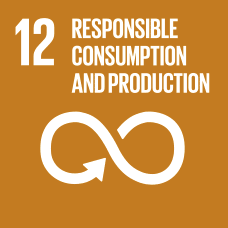 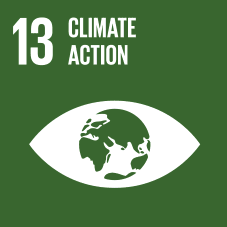 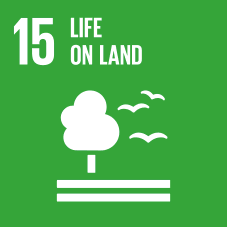
|
- Implement, maintain and improve the environmental management system as a tool for implementing the QHSE Policy across the PGNiG Group.
- Using environmentally-friendly technologies and techniques to reduce the volumes of generated emissions, waste and wastewater and enable efficient use of natural resources in order to meet new challenges, including those presented by circular economy. As part of these efforts:
- The PGNiG TERMIKA Group takes steps to modernise its old and environmentally inefficient generation assets to meet environmental regulations, stricter industrial emissions standards and BAT (best available technology) criteria. The key investment projects underway in 2019 included the performance of the contract to construct a CCGT unit and a peak-load boiler house at the Żerań CHP plant and an investment programme to upgrade the Pruszków CHP plant. In August 2019, an environmental permit was issued for the construction a multi-fuel unit at the 75 MW Siekierki CHP plant.
- PGNiG Termika generates ca. 550,000–650,000 tonnes of ash, slag and gypsum per year, which are subsequently used by the construction industry as building materials or for remediation and reclamation of abandoned surface mines.
- Ensure that the PGNiG Group’s suppliers and contractors comply with the highest environmental protection standards and use environmentally-friendly technologies and solutions.
- Design, execute and participate in research projects on new technologies to improve the environmental and economic performance of work carried out by the PGNiG Group.
- Minimise the PGNiG Group’s environmental impact through land reclamation (including with regard to past operations and the related historical contamination).
- Conduct promotional and awareness campaigns for customers who are switching to gas fuel in their heating systems.
|
|
Area
|
Goal
|
Key steps taken to achieve the goal
|
| Environmental protection |
Improving energy efficiency throughout the PGNiG Group’s value chain 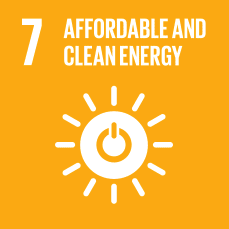 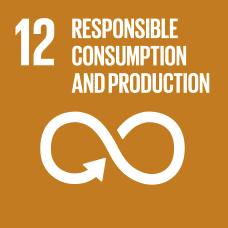
|
- Identification and implementation of energy efficiency improvements in the business activities conducted by the Group companies and branches (replacement of inefficient technologies and loss reduction, for instance by switching to LED lighting; implementation of the PGNiG Group Green Office project):
- Implementation of the ISO 50001-compliant energy management system in further Group branches and companies;
- Development and implementation of a programme supporting cooperation with the PGNiG Group’s end customers in implementing energy efficiency projects.
- Promoting the existing energy-efficient solutions, including cogeneration sources
|
|
Area
|
Goal
|
Key steps taken to achieve the goal
|
| General public |
Commitment to the development of social and intellectual capital in Poland by opening up to new initiatives and supporting pro bono projects 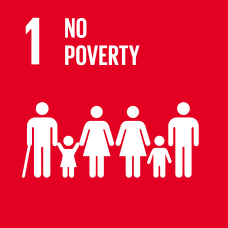 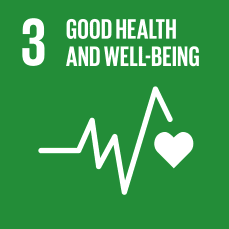 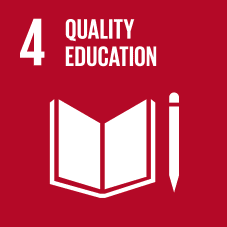 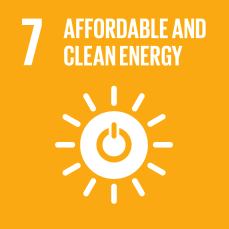 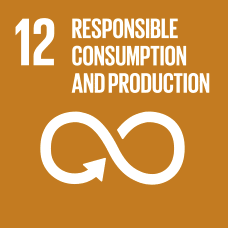 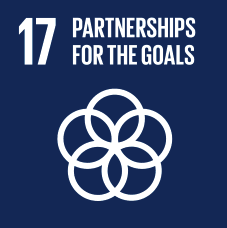
|
- Implementation of strategic long-term community outreach programmes by the PGNiG Foundation, particularly those falling within the scope of public benefit activities, such as promotion and support of health care, social welfare, physical education and sports, environmental protection, youth education, scientific research, culture as an element of national heritage etc.
- Sponsorship of sports, cultural and scientific events falling within the remit of the Foundation’s competence areas in order to support the development of social capital.
|
|
Area
|
Goal
|
Key steps taken to achieve the goal
|
| General public |
Dialogue with local communities in accordance with the best standards developed at the PGNiG Group   
|
- Implementation of Group-wide uniform rules for conducting dialogue with external stakeholders, including local communities, authorities, and non-governmental organisations (and sharing relevant knowledge across the PGNiG Group).
- Conducting awareness and educational campaigns on project execution standards applied by the Group, also with respect to communicating such aspects as environmental protection, workplace safety, local communities, dialogue, project objectives, and related risks and rewards;
- Supporting local initiatives to build a positive image of the PGNiG Group among local residents;
- Engaging employees in social initiatives.
|
|
Area
|
Goal
|
Key steps taken to achieve the goal
|
| Customers |
Increasing customer satisfaction by improving service quality and investing in advanced digital communications solutions and tools that meet the needs of various customer groups. Continuous improvement of customer service standards and maintaining strong customer satisfaction.

|
- Conducting business activities in compliance with ethical standards and acting in customers’ best interests (clear and straigthforward contract terms);
- Implementation of customer service improvements;
- Expansion of electronic sales and customer service channels (live chat, online voice/video calls, customer service portal) based on good market standards.
- Implementation of efforts designed to increase customer awareness in the energy market in the context of market liberalisation and fair competition (reading contracts before signing – ‘informed customer’ campaign, etc.);
- Development of modern customer service solutions for excluded customers.
|
|
Area
|
Goal
|
Key steps taken to achieve the goal
|
| Customers – expanding the product range |
Continuously increasing product and service availability    
|
- Development of services relating to universal access to energy, gas system services, household and energy efficiency products, and new business partnerships related to the product range;
- Development of products and services intended for cities and urban residents, aimed at increasing utilisation of district heating and natural gas (including CNG and LNG) to reduce low-stack emissions (partnerships with cities, cogeneration, CNG for sustainable urban transport, citizen education, etc.);
- Development of an integrated product range with a particular focus on areas where air pollution limits are exceeded;
- Implementation of an approach to leveraging the available customer base for increased effectiveness of the PGNiG Group’s sales efforts;
- Conducting marketing and image-building campaigns to increase the PGNiG Group’s reputation as a provider of a broad range of services and energy security.
|
|
Area
|
Goal
|
Key steps taken to achieve the goal
|
| Employees |
Reliable employer – promoting and implementing good hiring standards by pursuing a professional HR policy and building a friendly workplace 
|
- Conducting regular employee sentiment and satisfaction surveys and developing an approach to implementing the solutions to problems raised by employees;
- Continued implementation and continuous improvement of the employee performance assessment system;
- Continued implementation of training programmes tailored to the needs of individual employees;
- Maintaining key employee privileges and benefits and taking efforts to harmonise benefit packages across all companies and branches;
- Continued dialogue with trade unions;
- Pursuing a family-oriented policy and promoting health and healthy lifestyles as part of employee support efforts;
- Implementation of an internal communication programme for employees across the PGNiG Group to reinforce their sense of belonging and raise their awareness of the Company’s business goals and their role in delivering those goals;
- Deployment of tools supporting vertical and horizontal communication across the PGNiG Group.
|
|
Area
|
Goal
|
Key steps taken to achieve the goal
|
| Employees |
Employee development – Development of mentoring and proactive initiatives to ensure the availability of qualified staff. 
|
- Refining PGNiG SA’s recruitment policy and development of similar rules across PGNiG Group companies, with a particular focus on internal promotions;
- Launch of the SITO programme (Talent Identification System) across PGNiG Group companies;
- Launch of a mentoring programme for the talent pipeline;
- Providing mentoring to new hires to maintain the continuity of expertise;
- Development of a work placement and internship programme for the PGNiG Group.
|
|
Area
|
Goal
|
Key steps taken to achieve the goal
|
| Employees |
Occupational health and safety – Implementation of uniform OHS management standards in order to constantly increase the safety of PGNiG employees, any other persons on PGNiG premises, and the local community 
|
- Implementation of norms and standards that follow from good practices and promoting safe solutions to minimise accidents at work;
- Implementation, analysis and assessment of the Awareness and Behaviour Improvement Programme;
- Communicating occupational health and safety issues;
- Continuous enhancement of employee qualifications and awareness in the area of workplace health and safety, taking into our their roles and engagement in tasks assigned;
- Continuous efforts to build a safety culture among employees by encouraging exchange of knowledge and skills among employees and representatives across the PGNiG Group (competitions, conferences, cooperation with rescue services).
|
|
Area
|
Goal
|
Key steps taken to achieve the goal
|
| Innovation for development |
Active support of the development of cooperation with scientific and research institutions and start-ups or SMEs in order to constantly improve the efficiency of the Company’s operations. A steady year-on-year growth in the number of completed innovation projects and initiatives.

|
- Supporting business-science partnerships through joint project implementation;
- Implementation of innovation projects in the fields of energy efficiency, development of products and services for PGNiG Group customers, development of new business directions, and reduction of environmental impacts;
- Pilot implementations of new innovations;
- Implementation of a programme encouraging innovation development within the PGNiG Group;
- Regular internal communications promoting employee innovation;
- Conducting a strategic image-building campaign to promote the PGNiG Group as an innovation-driven company open to collaboration with creative individuals and companies.
|
|
Area
|
Goal
|
Key steps taken to achieve the goal
|
| Ethics – value system |
Broadening employees’ knowledge of the ethical values and principles applicable in the work environment. Responsible management of the entire value chain based on transparent cooperation principles taking into account social, environmental and safety criteria and human rights.   
|
- Implementation of an employee ethics training programme;
- Defining the desired ethical behaviours for the roles and duties of selected employee groups (customer service, relations with local governments, etc.);
- Proactively communicating the PGNiG Group’s ethics policies and expectations to suppliers.
|














